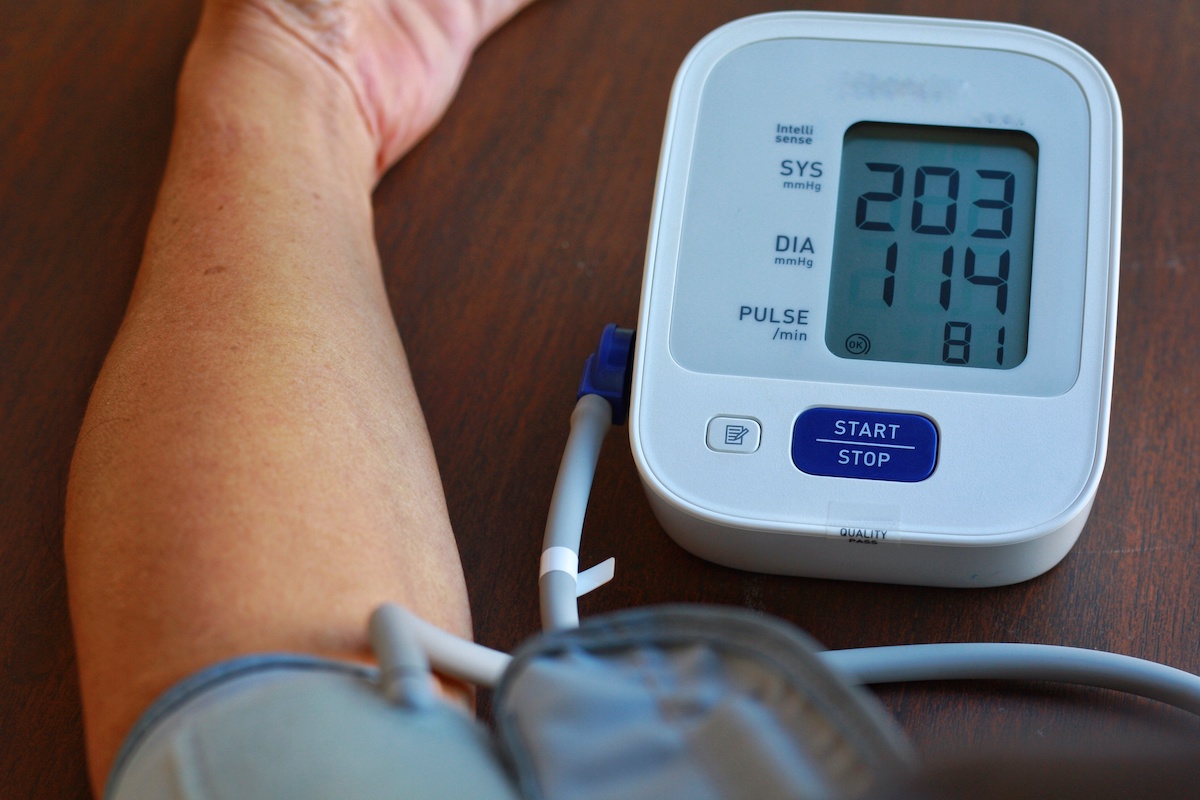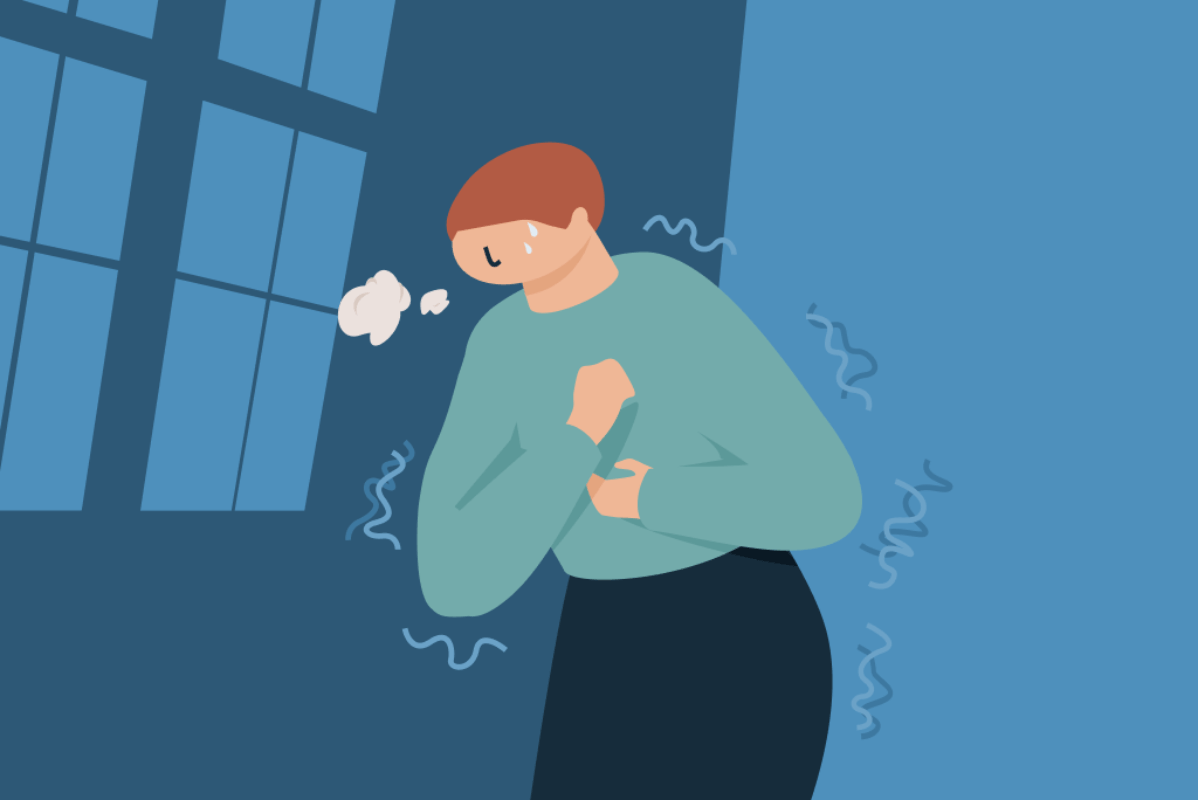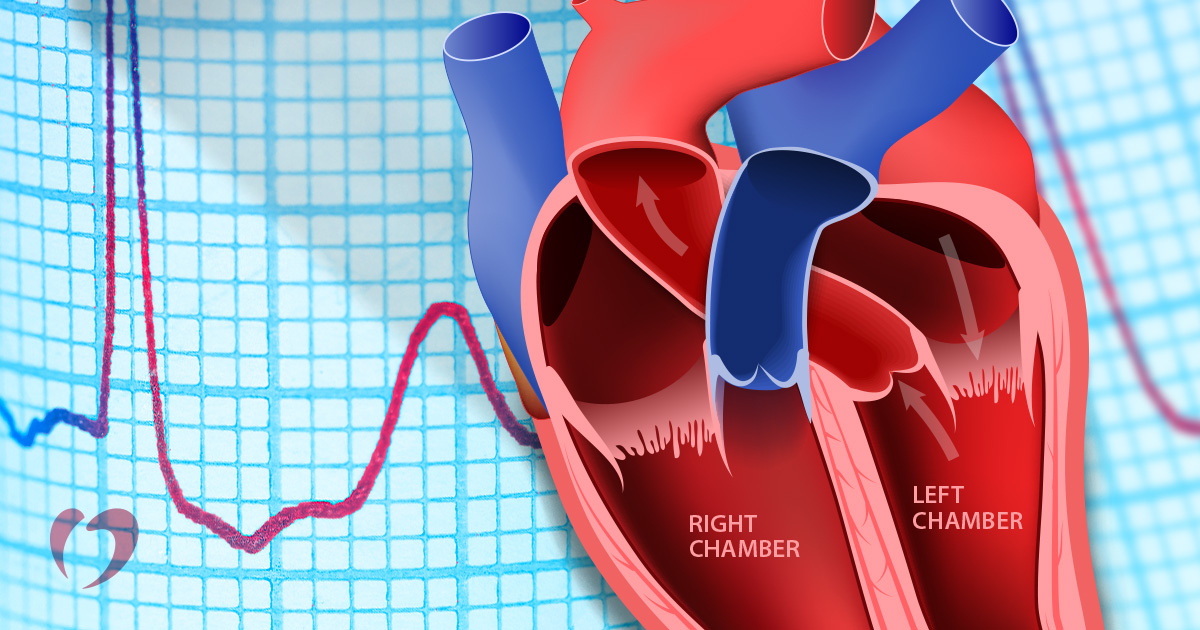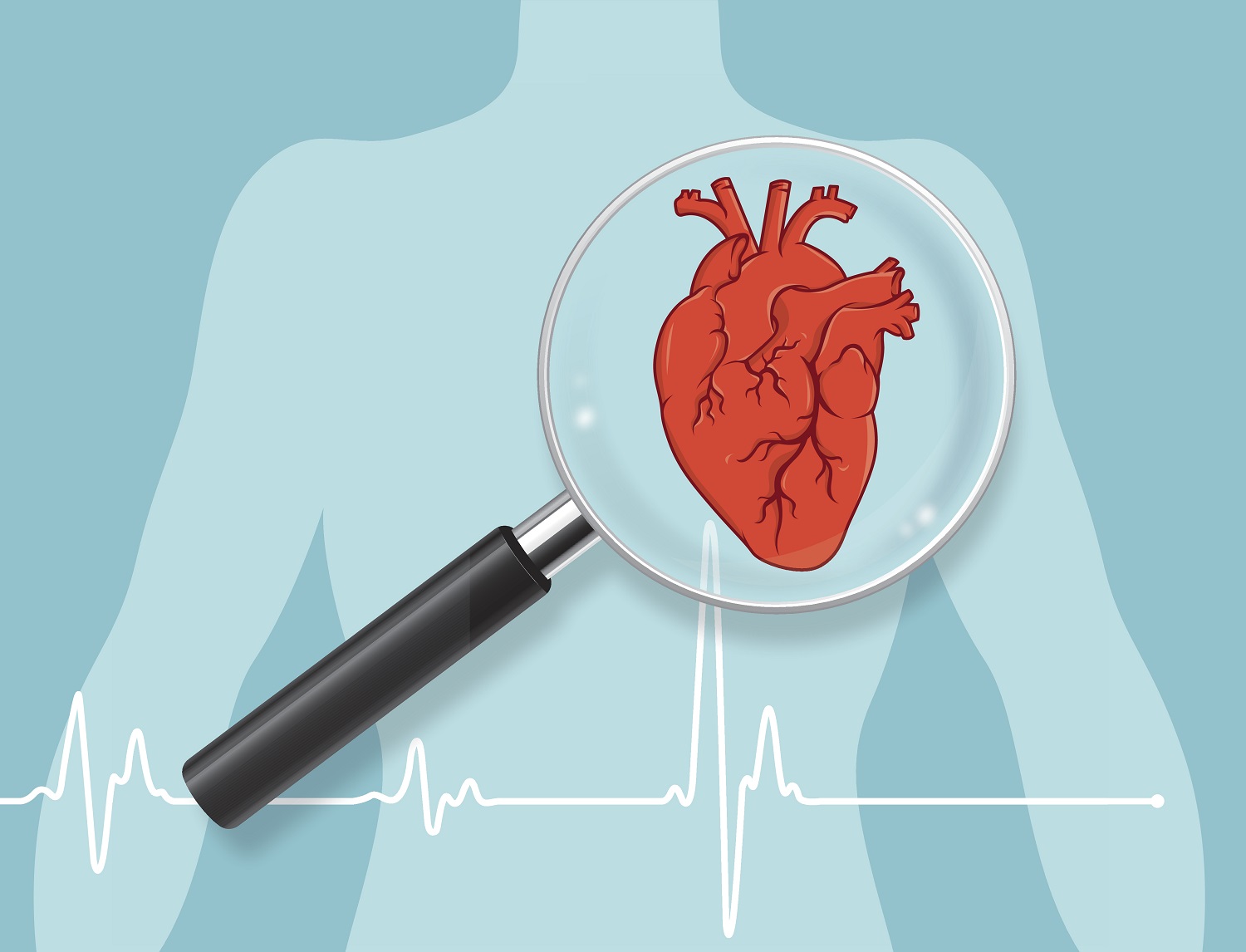High blood pressure is a common condition that impacts the arteries. People also call this illness hypertension. If you have high blood pressure, the blood always pushes against your artery walls with too much force.
Mm(millimeter) of mercury is used to measure blood pressure. Hypertension is defined as blood pressure measured in millimeters of mercury (mm Hg) or greater, or 130/80.
Your health may be harmed by high blood pressure in four main ways:
1. Arterial hardening (Atherosclerosis): High blood pressure can cause the artery walls to thicken, narrowing the artery and increasing the risk of blood clots that can result in a stroke or heart attack.
2. An enlarged heart, or cardiomegaly: high blood pressure forces the heart to work harder, leading to enlargement and increased oxygen demand.
3. Kidney Damage: The blood supply to the kidney Prolonged high blood pressure can damage kidneys by affecting their blood supply.
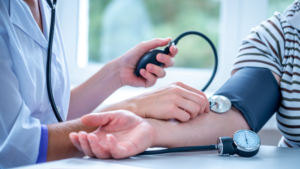
- Eye Damage (Retinopathy): High blood pressure can cause capillaries in the retina to bleed, leading to blindness, especially in people with diabetes.
Why does hypertension occur?
– Primary hypertension, also known as essential hypertension, accounts for 90–95% of cases of high blood pressure in which the precise cause is unknown. However, the emergence of primary hypertension is influenced by several factors.
Some common factors that contribute to primary hypertension include:
– Genetics
– Age (risk increases with age)
– Obesity or being overweight
– Physical inactivity
– Smoking
Additionally, secondary hypertension (5-10% of cases) is caused by underlying medical conditions, such as:
– Kidney disease or kidney failure
– Sleep apnea
– Adrenal gland tumors
High blood pressure often doesn’t have noticeable symptoms, but here are some possible signs:
- Headaches: Frequent or severe headaches can be a sign of high blood pressure.
- Dizziness or Lightheadedness: High blood pressure can cause dizziness or lightheadedness due to decreased blood flow to the brain.
- Nosebleeds: High blood pressure can cause blood vessels in the nose to become fragile and prone to bleeding.
- Shortness of Breath: High blood pressure can lead to fluid buildup in the lungs, causing shortness of breath.
- Chest Pain: High blood pressure can cause chest pain or discomfort, especially if it leads to heart disease.
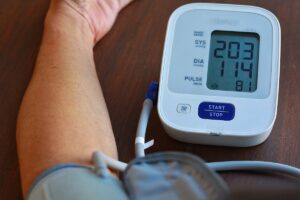
High blood pressure is typically diagnosed through a combination of:
- Blood Pressure Readings: Multiple blood pressure measurements are taken over time, usually at a doctor’s office or clinic.
- Medical History: Review your medical history, including any previous diagnoses, medications, and lifestyle habits.
- Physical Examination: A physical exam to look for signs of high blood pressure or related conditions.
- Blood Tests: Blood tests to check for underlying conditions, such as kidney disease or thyroid disorders.
How often should blood pressure be checked?
Adults should have their blood pressure checked at least once a year.
How much high is a high B.P?
The American College of Cardiology and the American Heart Association classify blood pressure into five categories.
- Normal Blood Pressure: Less than 120/80 mmHg
- Elevated Blood Pressure: 120-129/less than 80 mmHg
- Stage 1 Hypertension: 130-139/80-89 mmHg
- Stage 2 Hypertension: 140 or higher/90 or higher mmHg
- Hypertensive Crisis: 180/120 mmHg or higher (requires emergency medical attention)
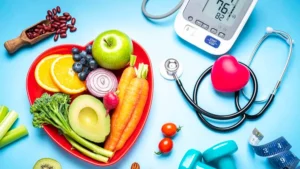
What can be done to control High B.P –
- Nutrition: – Adhere to the Dietary Approaches which emphasizes fruits, vegetables, whole grains, lean meat, and low-fat dairy to help bring down B.P.
- Weight Control: Reducing some Kg”s helps a lot in reducing B.P. if you are overweight.
- Exercise; – To Bring your B.P. under control start a regular exercise program, aiming for moderate-intensity aerobic exercise of at least 150 minutes or vigorous-intensity aerobic exercise 75 minutes of per week
- Stress Management:- Meditation, yoga, or deep breathing help in bringing down the B.P
- Smoking Cessation:- As we all know smoking causes lots of problems, and quitting smoking gives good results in bringing back the High B.P.
- Consumption of Alcohol:- Drinking affects the B.P, consume alcohol in moderation (1-2 drinks per day for men, 1 drink per day for women)
Summary
With more than 20+ years of experience in cardiology, Dr. Naresh Kumar Goyal alumnus of India’s best Institute AIIMS, and who worked in top hospitals across India is one of the most skilled medical professionals in Cardiology practice. He has helped innumerable patients attain the most dependable results by learning to manage high blood pressure. Dr. Goyal who is Director and HOD – Interventional Cardiology and Heart Failure Department at Fortis Hospital Shalimar Bagh gives a personalized approach to hypertension control and has earned him recognition as a leading expert in the discipline.

